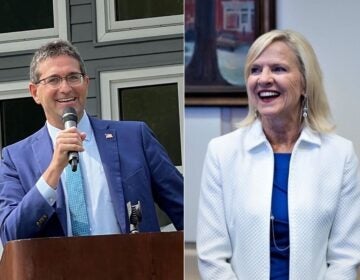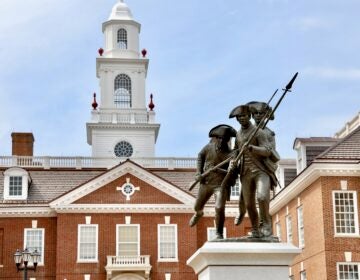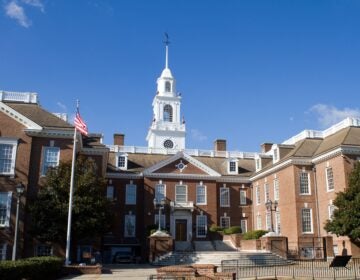City of Newark moves to tax University of Delaware per student
State Rep. Cyndie Romer (D) is considering sponsoring legislation that would allow the city of Newark to levy this new tax.
Listen 0:57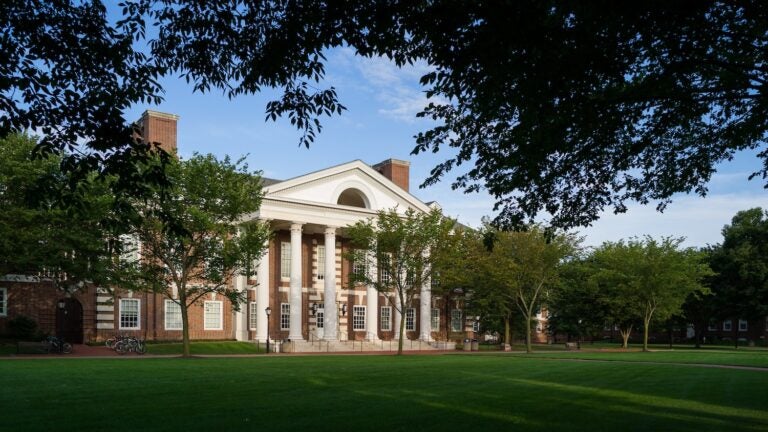
University of Delaware's campus in Newark. (University of Delaware)
From Philly and the Pa. suburbs to South Jersey and Delaware, what would you like WHYY News to cover? Let us know!
Students at the University of Delaware could soon pay a new “per student” tax to attend class in the city of Newark.
Democratic state Rep. Cyndie Romer said she is considering sponsoring legislation that would allow Newark to charge a college or university holding in-person classes in the city up to $50 per semester for each full or part-time undergraduate or graduate student. The fee would apply just to fall and spring semesters.
City Manager Tom Coleman said the fee would bring in between $2 million and $2.4 million to the city annually. UD’s average student population numbers around 24,200.
Romer said it’s not an unreasonable ask.
“We really need to address the financial issues concerning the city while protecting the residents from further property tax,” she said. “We’re seeing more and more of Newark move from single family homes to rentals, and we just can’t keep putting the burden of supporting the town on those families.”
Newark City Council voted unanimously Tuesday night on a resolution to collect the tax.
Two-thirds of state lawmakers in both chambers now have to approve a bill for the city to amend its charter to levy the fee, and the governor would have to sign it. The City Council would then vote on it a final time.
Council postponed discussion on a second resolution that would tax lease payments and gross rents.
Romer and Coleman said the tax is not on students, but on the university, which does not have to pass all or any of the charge down to its students. But students crammed into the council room, concerned the “per student” tax on the school will be passed along to them. Many students spoke in opposition to the fee. A Change.org petition has gathered 3,734 signatures in opposition to the city’s plan.
Julia Hatoum, UD undergraduate student body president, said the tax would hit those who could least afford to pay it. The cost of tuition for in-state students is about $34,000 and out-state tuition is $57,358.
“These costs can be so overwhelming that some students experience insecurity of basic needs, including challenges with food, housing, health care and even hygiene,” she said. “Those are the students who would be impacted by this ordinance the most. By increasing burdens on financially insecure students, you are making access to higher education more difficult for students from lower income backgrounds.”
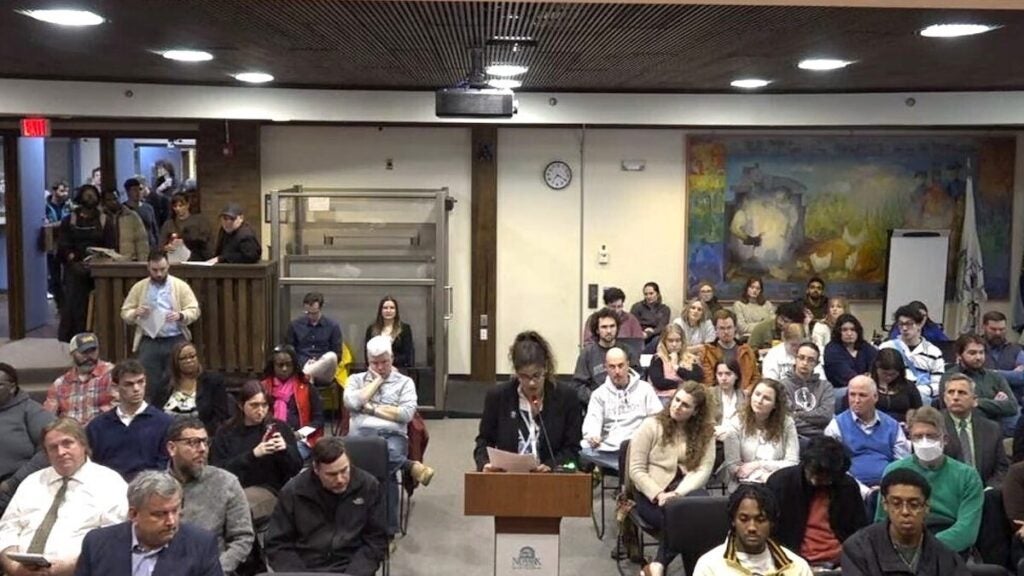
It’s unclear that if such a measure was ultimately implemented, whether or not the school would pass some or all of the fee down to students. University officials said they were surprised by the proposals from the city. UD Government Relations Director Caitlin Olsen called the resolution “hasty and unnecessary.”
“Using our students as a vehicle for tax increases is an affront to all that our relationship stands for,” she said. “Newark is a place that should cultivate opportunity and appreciation for all that the next generation can bring forward.”
Coleman said he did reach out about the tax proposal before it went on the City Council agenda, but the conversation between the two parties was not productive. About 42% of real estate in Newark is tax-exempt, largely because of the University of Delaware, which like all other nonprofits, doesn’t pay property taxes. The city said if it did, its tax bill would be about $6 million.
The school does pay the city for utilities, water and additional payments they make in lieu of taxes, called “PILOTs.” Coleman said because the school pays with a credit card, Newark has to eat $400,000 in processing fees a year despite requests asking the school to use a different payment method.
The University of Delaware’s budget request to lawmakers this year is $146 million. Romer said that means lawmakers may have some leverage over the university to encourage them to holistically evaluate the fees they’re charging students. But because the university has a private charter, state appropriations account for just a small fraction of its budget.
Romer, an UD graduate and parent of a student who goes there, said she plans to meet with the city of Newark again about possible legislation.
“I’ve heard from residents and many voiced their support for the council for this ordinance,” she said. “And the reality is city residents elected this council and they unanimously voted for this ordinance. As the state rep for this district, it’s really my responsibility to support the residents of Newark.”
Last week, UD announced several cost-saving measures as the school faces a potential 27% increase in the cost it pays for employee health care. The new steps to cut back include limits on hiring, travel and events.

Get daily updates from WHYY News!
WHYY is your source for fact-based, in-depth journalism and information. As a nonprofit organization, we rely on financial support from readers like you. Please give today.



